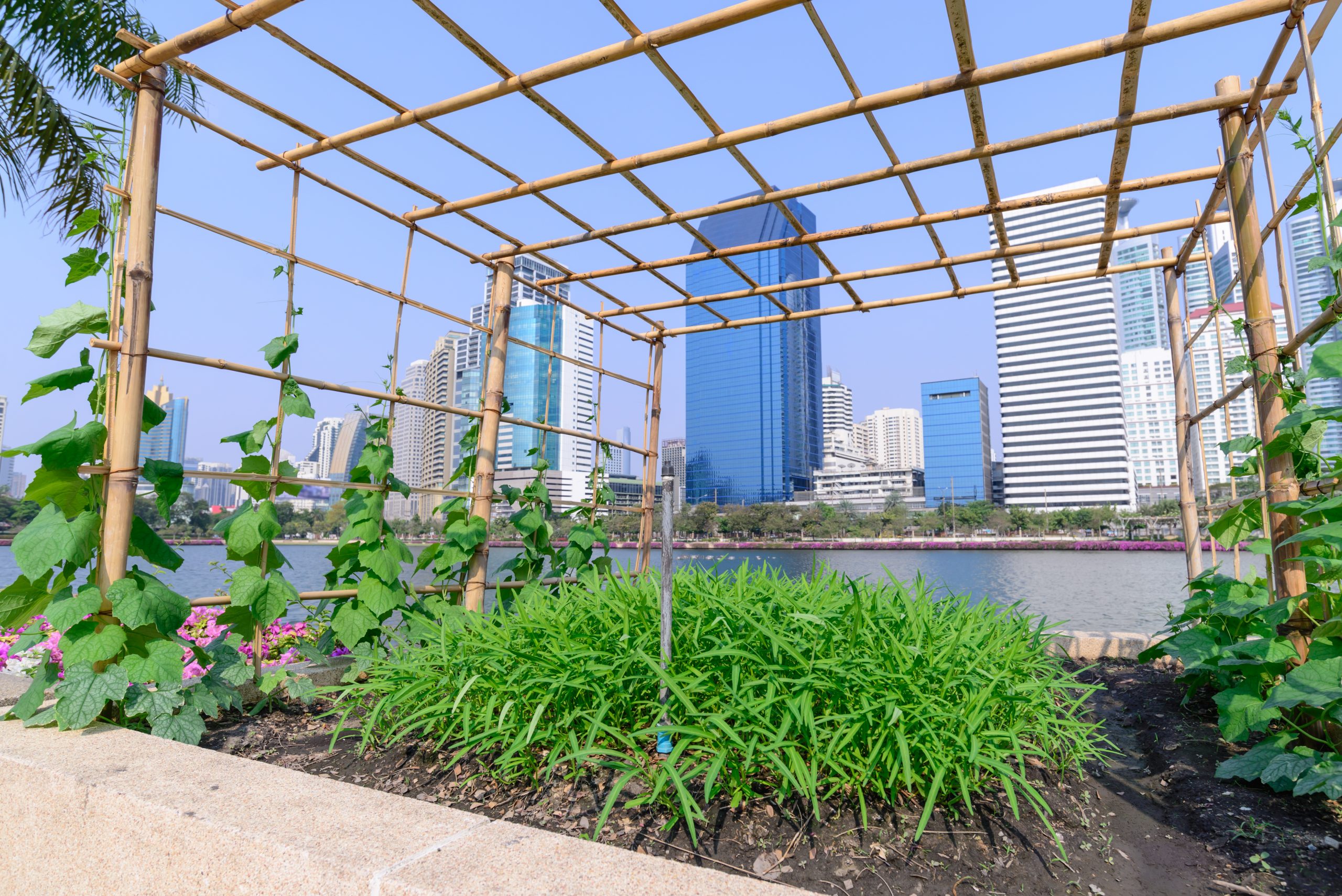
The Research problem
As the world’s population gravitates increasingly towards cities, Urban Agriculture (UA) can play a critical role in supporting sustainable development, boasting economic, social, and environmental benefits. UA enables local production and provision of food and greatly reduced supply chains connecting urban populations with agricultural processes, and biophilic environments. In this way, UA can contribute to the Sustainable Development Goal of making cities and human settlements inclusive, safe, resilient, and sustainable.
UA can create a positive impact on food security and enable sustainable cities. What is unclear is how best to do this with regard to the type of technology, what to produce, when to produce it, where in cities to do it, and who to involve in decision-making and implementation. This project will create tools that can facilitate evidence-based recommendations in these key areas, targeted at municipal policy makers, academia, and local industry in order to increase UA uptake.
Research Design
Addressing challenges in UA requires integrated research approaches across the biological, ecological, health engineering, energy, and geophysical sciences as well as the disciplines of the social sciences and the fields of planning, design, and policy. In other words, UA is an inherently transdisciplinary system requiring a wide range of expertise for it to be understood and implemented optimally.
We propose that new transdisciplinary systems modelling approaches can be employed to support decision making for UA as they permit rapid permutation and iteration of real-world scenarios to provide evidenced guidance as to how UA should be utilised. In building and operating these models it is essential that models reflect the inherently transdisciplinary nature of agricultural systems.
To work towards this, this project will create the Transdisciplinary URban Agriculture (TURA) modelling framework requiring integrated expertise across a range of disciplines. As such, this project brings together a UA research community with expertise in: Industrial Engineering; Accounting; Finance and Economics; Transdisciplinary Engineering; Systems thinking; Production Systems Modelling; Sustainable land use; Last mile logistics for urban gardens; Social issues and implications surrounding UA; Urban and rural resource management; agricultural technology development; industrial automation; and, Agrodesign and its impact on society and culture. This diversity of experience is where the ability of the project team to explore and create a holistic understanding of UA plays a crucial role.
The generation of the TURA modelling framework and creation of the research partnership will be facilitated through the running of both virtual and in-person workshops to enable the sharing of domain specific knowledge associated with the aforementioned range of expertise and through creation of a community of practice working in the area of UA.
Project Objectives
The objectives of the project are threefold and are as follows:
1) To bring together the participating WUN team and undertake a workshop to collate domain specific experts working in Urban Agriculture (UA) research;
2) To create the Transdisciplinary URban Agriculture (TURA) modelling framework and produce both an academic publication and white paper to disseminate it;
3) Build a community of researchers in UA comprising the WUN team and additional members from academia and industry that represent further geographic areas and disciplines. From this community it will be possible to continue UA research and apply for follow on funding.
WUN is supporting this research first, by providing an initial network of researchers and second, through provision of funding that enables the research team to meet, conduct a workshop to bring together a range of views constituting a holistic view of UA, subsequently to create the TURA framework and meet with industrial partners working in the area of UA.